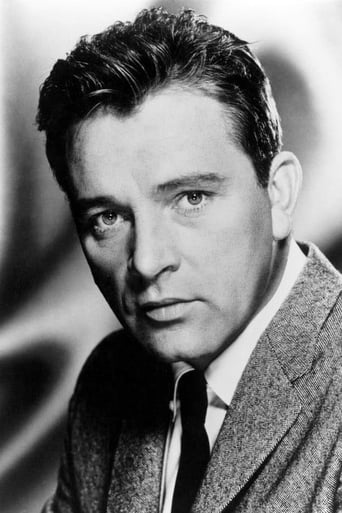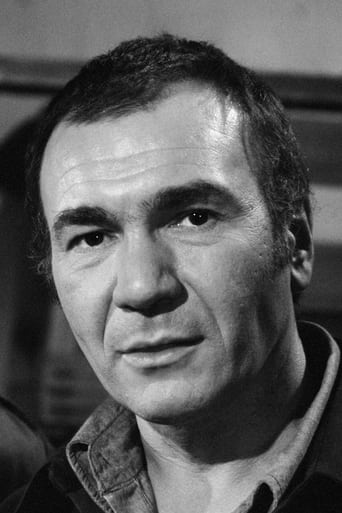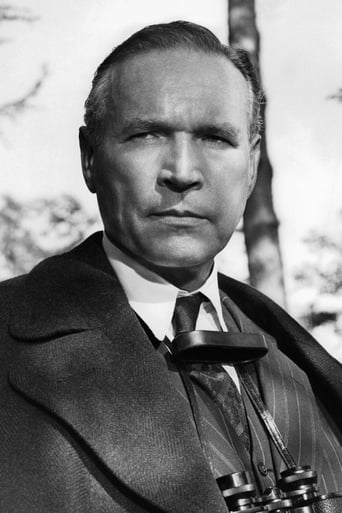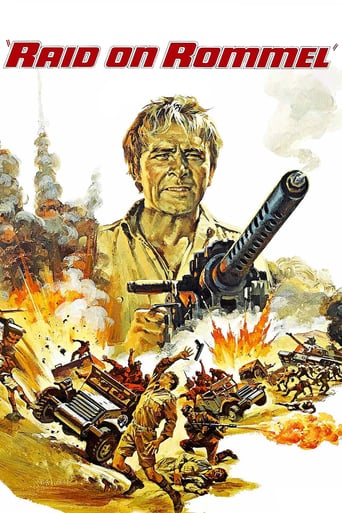
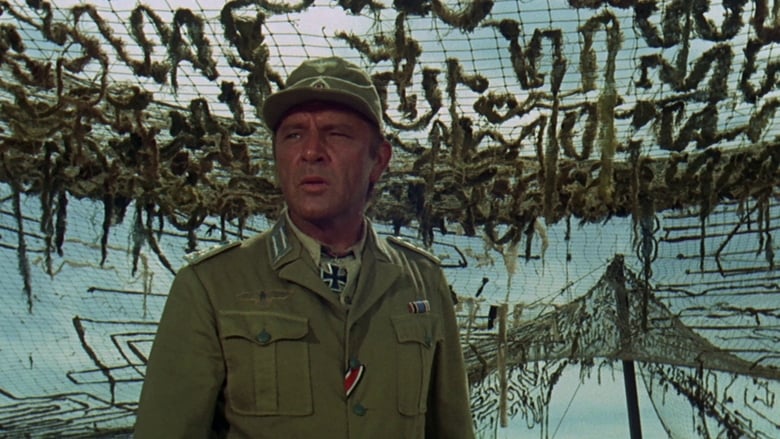
Raid on Rommel (1971)
Captain Foster plans on raiding German-occupied Tobruk with hand- picked commandos, but a mixup leaves him with a medical unit led by a Quaker conscientious objector.
Watch Trailer
Cast


Reviews
Pretty Good
Through painfully honest and emotional moments, the movie becomes irresistibly relatable
This is a coming of age storyline that you've seen in one form or another for decades. It takes a truly unique voice to make yet another one worth watching.
An old-fashioned movie made with new-fashioned finesse.
This film is very enjoyable, due to the fact that Richard Burton was probably drunk through much of this film, and his dialogue is quite funny at times. I know this film borrows heavily from "Tobruk," but it is still a fun film, with fast moving action sequences. We do see the same birds flying in the sky in numerous shots, and Richard Burton is filmed wide, so he can match up with George Peppard, since they were lifting scenes from Tobruk. The part where the Nazi and the Britsh doctor are talking about stamps is pretty funny. A good way to pass 2 hours on a rainy or snowy day. See it if you are a fan of war films, or a fan of Richard Burton.
What an awful mish-mash of a movie. Lacking direction, mediocre acting, appalling editing. One wonders who approves the making of films like this. I can't even put this kind of propaganda in context (1971)- hooray the West democracies can win sometimes ? Surely movie-makers have some respect for their craft, and even with low-budget pot-boilers they'd bother with script,continuity,plot and character development ? Why were the (British) propaganda war films during, and just after, World War 2 so sophisticated and nuanced and yet so many rubbish war films made from the 1970s onwards ? So much for the linear-development of cinema as art. Some genres have 'naturally' petered out, such as Westerns. Hollywood only rarely re-captures the wit and humour of pre-war rom-coms. "Art house" films are mere pretension and few are both experimental and touch the audience. "Serious" war films are one-dimensional. This film doesn't pretend to be serious, but really...it should never have been made.
Admittedly, Henry Hathaway's "Raid on Rommel" isn't the masterpiece that Brian Hutton's "Where Eagles Dare" was for Richard Burton, but this low-budget World War II epic about an unlikely British commando unit operating behind Nazi lines in North Africa doesn't qualify as a complete bust. Richard M. Bluel's screenplay is predictable but entertaining for the most part. Sure, better movies about the British North African campaign have been made going back as early as "The Desert Rats of Tobruk" (1944) and then in the 1950s came Hathaway's own "The Desert Fox: The Story of Rommel" (1951), followed by Robert Wise's "The Desert Rats" (1953), Nicholas Ray's "Bitter Victory" (1957), Terence Young's "No Time to Die" (1958), Arthur Hiller's "Tobruk" (1967), and one of the very best and most grim: Andre de Toth's "Play Dirty" (1969). "Raid on Rommel" deserves no Oscars or special recognition of any kind, but it is an amenable way to spend 99 minutes.Indeed, "Major Payne" producer Harry M. Tatelman plundered the Universal Studios' stock footage archives for all of the exciting action footage from Hiller's "Tobruk" and seamlessly incorporated it into "Raid on Rommel." I would even argue that the action footage fares better here than in Hiller's "Tobruk." "Tobruk" was a "Guns of Navarone" clone with Rock Hudson as a Canadian and George Peppard as a German Jew who fought against the Nazis. Mind you, recycling footage in Hollywood is an age-old, time-honored practice. For example, every low-budget caveman or lost continent movie that came out of Hollywood in the 1950s exploited footage from "One Million B.C." In "Raid on Rommel," Burton is cast as Captain Alex Foster. British Intelligence riddles a Nazi half-track with machine gun fire and Foster climbs into it and drives off into the desert seemingly oblivious as to his destination. Later, a Nazi convoy ferrying sick P.O.W.s discovers Foster and picks him up. Initially, Major Hugh Tarkington (Clinton Greyn of "Robbery") knows that Foster isn't suffering from heat exhaustion, but he warns him that he wants to know his orders. Foster reveals his mission to Tarkington, only to learn that he has stumbled onto the wrong convoy. Instead of seasoned commandos at his disposal, he has the sick and the injured. Boy, is Foster upset and Tarkington isn't inclined to help him. Eventually, Tarkington changes his mind.Meanwhile, Foster manages to make something of the men at his disposal thanks largely to Sgt. Maj. Allan MacKenzie (John Colios of "Scorpio") and the British overpower their Nazi captors and disguise themselves as the enemy. Talk about improvising! On their way to Tobruk, Foster and MacKenzie give their men a boot camp in firing mortars and rappelling down ropes by slinging them to the sides of the personnel carriers. Along the way, they pick up a civilian and a beautiful woman and use them as a part of their masquerade. Our valiant heroes enter Tobruk, meet Rommel at his headquarters where Foster learns the whereabouts of a fuel depot, and then they blow everything to hell and gone. The scene at Rommel's headquarters is especially neat because Tarkington gets into a polite argument with a cultured Rommel about collecting postage stamps, thereby giving Fosterdisguised as a Nazi officertime to study secret German maps.No, "Raid on Rommel" is not the most historically accurate World War II film by any stretch of the imagination. However, few films produced about historical events are faithful to history. If you see a movie to get the facts straight, you're a misguided soul. Hollywood doesn't specialize in history lessons; movie makers want to entertain us first and then second strive for accuracy. During the last half of the 20th century, all World War II movies contained historically inaccurate equipment. American 'Cold War' army tanks usually masqueraded as Nazi Tiger Tanks and vintage Navy propeller driven fighters doubled for Japanese Zeroes. As far as that goes, most filmmakers ignored the fact that Nazis spoke German and Hitler's madmen uttered their lines with obvious ersatz accents. These problems became conventions largely because American audiences couldn't speak the foreign dialects and subtitles were confined to foreign art films. "Raid on Rommel" contains one of the most obvious conventions of World War II movies that "Catch-22" changed. During one scene, an Allied P-40 Tomahawk fighter attacks the Nazi convoy that Foster has joined. The enemy manages to hit the fighter and it streaks off, pouring smoke, and crashes behind a sand dune with a fireball explosion rolling heavenward to mark its demise. Of course, the producers no more than the owner of that vintage plane were about to destroy it for this inconsequential movie. In "Catch-22," you actually get to see a plane crash nose first into the side of mountain! Meanwhile, the significance of "Raid on Rommel" is undoubtedly lost on today's audience. In 1951, Hathaway helmed an ahead-of-its-time World War II biography "The Desert Fox" and portrayed Rommel (James Mason) in sympathetic terms. In fact, Hathaway's portrait of Rommel proved too sympathetic and most film critics scourged Twentieth Century Fox for this depiction. A couple of years later to set the record straight, Mason reprised his role as Rommel in "The Desert Rats" and he was not accorded the sympathy that outraged critics in the Hathaway gem. Read the major reviews of "The Desert Fox" in Time, Newsweek, and the New York Times and you will see for yourself that Hathaway stirred up controversy.Yes, "Raid on Rommel" is a potboiler of sorts, probably memorable to World War II fans more for Hathaway's brief but sympathetic Rommel scene and foraccording to one Burton biographerBurton's sober performance. He didn't drink a drop while he was acting, but then crusty old Henry Hathaway, who never gave any actor a break, probably kept his eye on the Welshman. The performances are standard and one of the most respected Bavarian actors who specialized in playing German officersWolfgang Preissplays Field Marshal Rommel.
Richard Burton stars this film in which he is the British Captain Foster, who rescues some British doctors and some few soldiers from e convoy in which the Germans carried them to Tobruk. Captain Foster divide these British men so that some of them feign to be German and the others are the sick ones. So, leaving the German soldiers in the desert, they go to Tobruk, where they destroy the fuel deposits and then the canons so that the British Army can arrive at Tobruk port. Although the plot can sound nice and entertaining, Hathaway does not develop their characters (for example, the Italian prostitute is only decorative) and the Germans are very easy to be cheated. The director tries to adapt to the modern times, using many zooms and, perhaps, from the content point of view, in the character of Richard Burton, who is really an antihero: Captain Foster is a Maquiavellian man, who does not respect the Geneva conventions'rules, attacking a sanitary German convoy and using prisoners of war to get his aim. There two curiosities about this movie that I would like to remark: the first one is the use of war images from Tobruk by Arthur Hiller, which was also produced by Universal; the second one is that the filming location was in San Felipe, in Baja California Norte (Mexico) in spite of Africa. These facts show us that this film was B war movie in budget and in quality.



